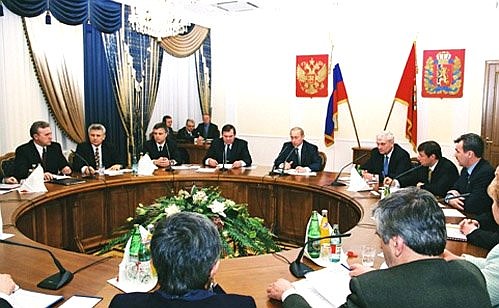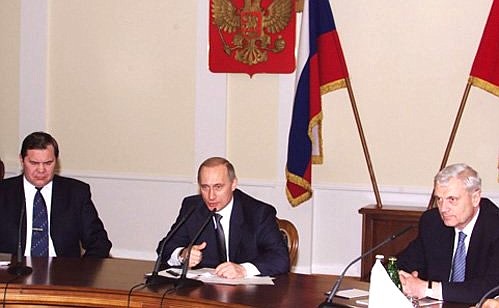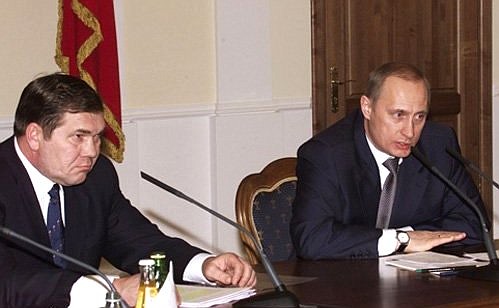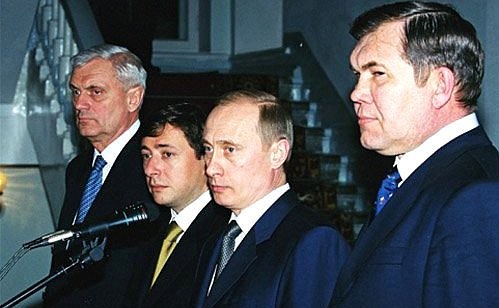At the beginning of his address, after noting that the region led the country in terms of most of socio-economic indicators and belonged to Russia’s 15–17 net revenue contributors, the President said that now he would pass from the procedural to the substantive part.
He said that the past year has seen a proliferation of loss-making enterprises. The regional budget had run up a deficit of 8%. The real incomes of the population were growing at a lower rate. Unfortunately, the President said, whenever the Krasnoyarsk Region was mentioned, the talk was less of its achievements and more of problems which piled up faster than they could be solved.
Many of the problems, the President said, were due to the lack of political regulation, and cropped up in areas that bore no direct relation to the economy but had an effect on it. High-running political passions have never helped solve social issues, the President noted.
He urged the leadership and all organisations of the Krasnoyarsk Region to do everything possible to put an end to their quarrels. Complex current political issues cannot be resolved at the expense of the population, he stressed. The President aligned himself with speakers who advocated a more streamlined economic policy for the region.
In turn, governor of the Krasnoyarsk Region Alexander Lebed and Alexander Khloponin, governor of the Taimyr Autonomous District, part of the Krasnoyarsk Region, expressed their readiness to settle the problems between them.
At the end of the meeting, the President met with journalists and commented on the results of the discussion. He again warned against over-dramatising the situation in the Krasnoyarsk Region, which is often at loggerheads with autonomous areas within it. In his opinion, the problems were fueled by economic difficulties, while the overall situation was one of inter-budgetary relations. The President expressed his conviction that the problem could be solved in a longer-term context, perhaps through appropriate agreements.



